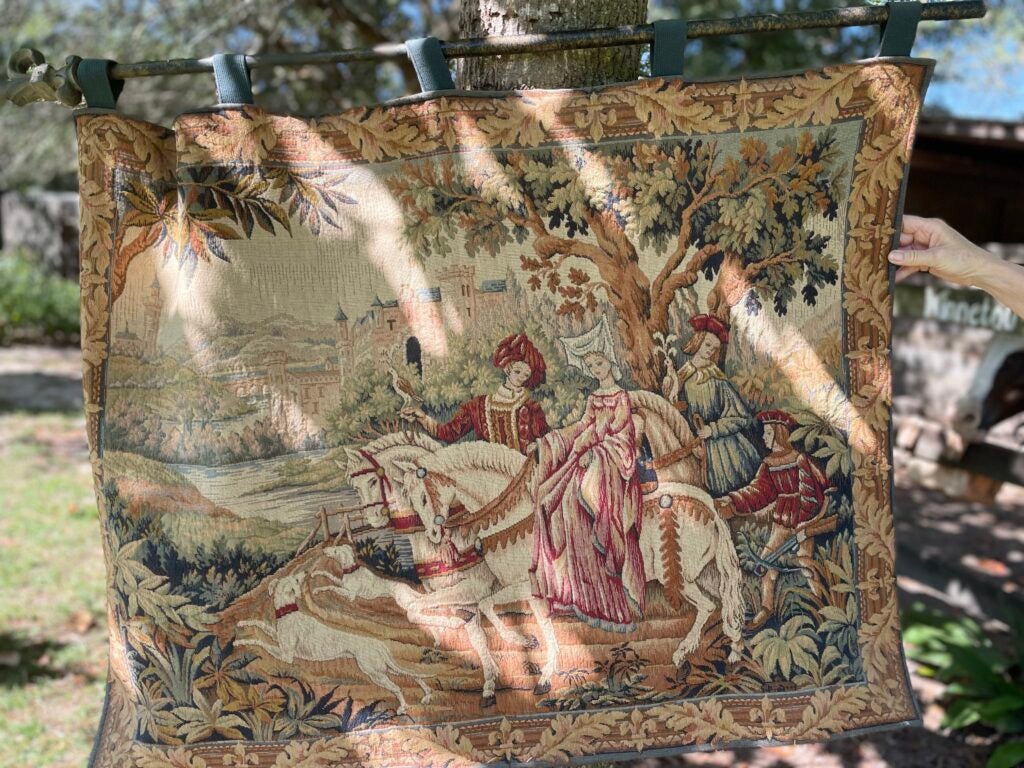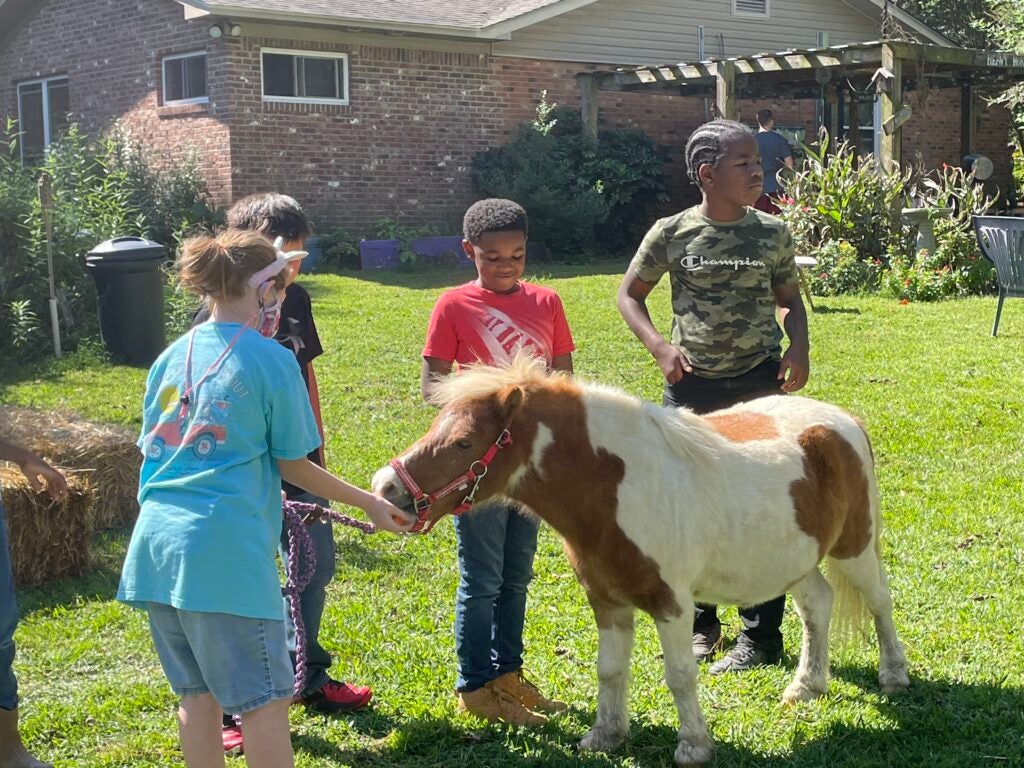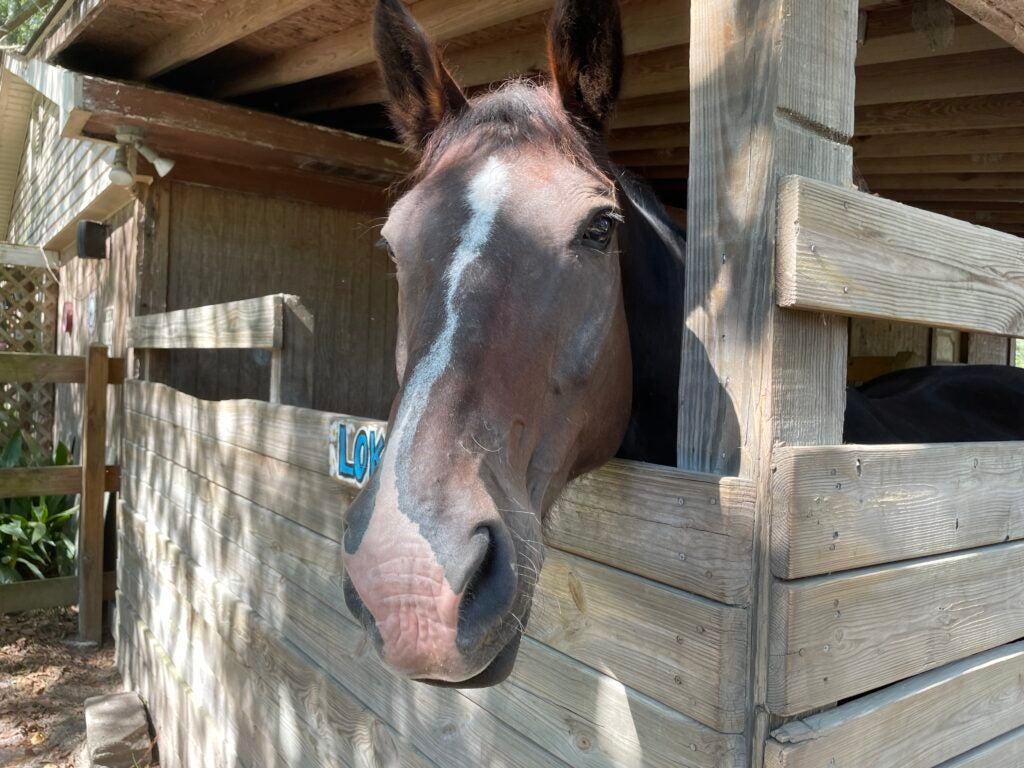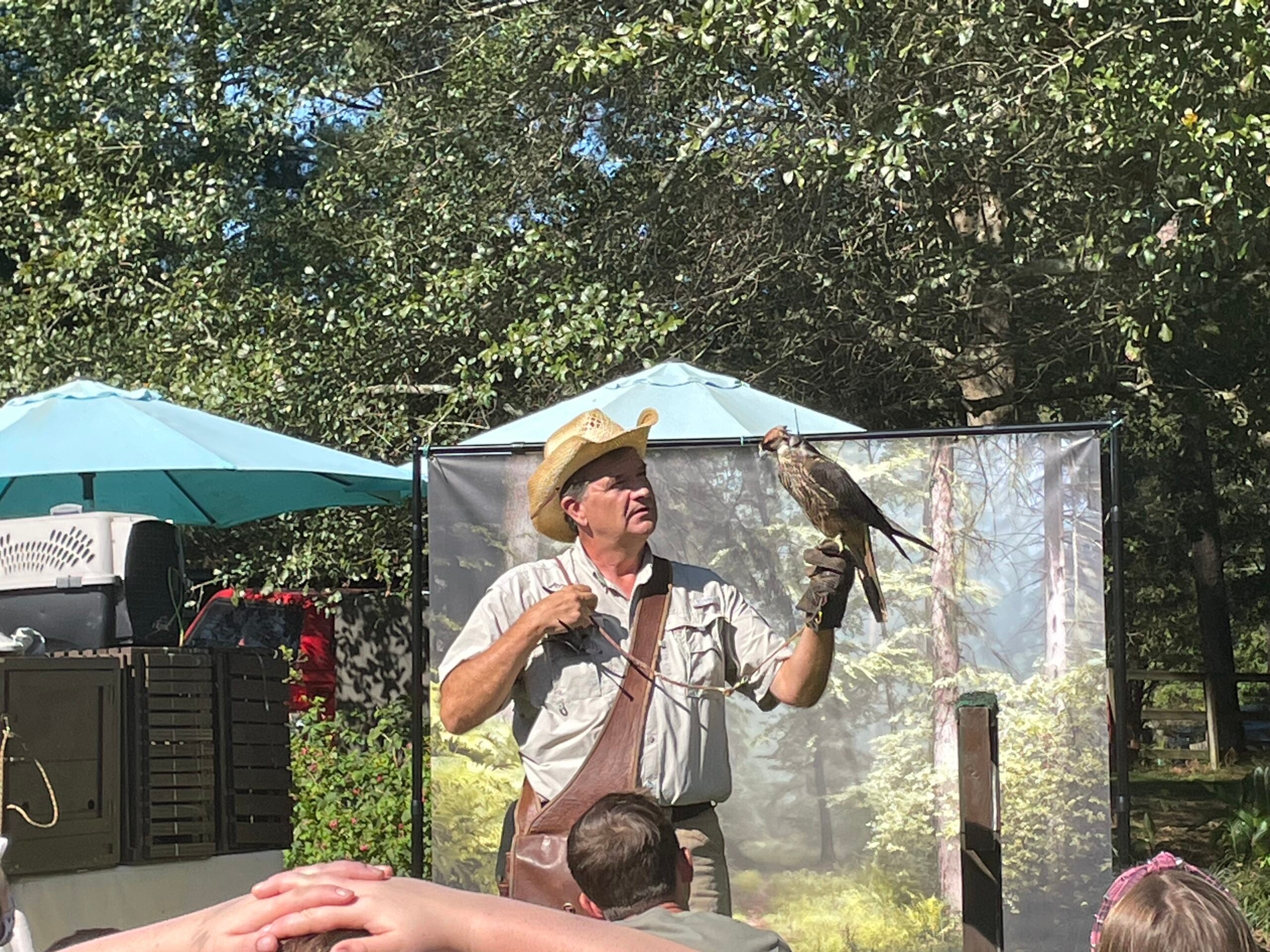Richmond County 4-H welcomed a few visitors to its monthly Horse Club meeting at Spirit Creek Farm on Saturday morning.
Glen Kansanback of Falcon Quest came to the farm to teach students — and grown-ups — about birds of prey and their uses in hunting over hundreds of years.
“Falconry is taking a wild bird from the wild and — not training it to hunt, they already know that — but training the bird to get used to being with people,” explained Kansanback to an audience of mostly elementary and middle-schoolers.
The North Augusta-based master falconer and educator brought several carnivorous fowl, all apex predators, and talked about how falconers in ancient cultures, like medieval Mongolians, used methods to train the birds that are still used today.
“Even though they’re primarily using golden eagles, they’re practicing falconry in a way that they’ve done for centuries,” said Kansanback.
Among Kansanback’s guests was Falkor, a female saker falcon, the largest species of falcon in the world, native to central Europe and migrating as far as Ethiopia, the Middle East and China. The saker is also the fastest animal in the world, able to swoop after prey as fast as 250 mph.
He then presented a yet unnamed female lanner falcon, a species native to North Africa, and spoke about their veneration in ancient Egyptian culture, as shown in figures like the Egyptian god Horus.

Kansanback also brought out Delilah, a spectacled owl, native to tropical areas, and as a nod to the coming Halloween season, a barn owl named Ghost. He told the students about the barn owl’s keen senses, particularly how its unique, dish-shaped face acts as a kind of “satellite dish” to pick up sound, enabling to hear small prey — such as mice — tunneling under snow.
Falconers condition their birds to grab food presented to them from a pouch, so that they won’t eat the animal being hunted and fly away, Kansanback said.

“The only reason she lets me put that hood on her head is food,” he said about Falkor, as the bird quickly devoured pieces of chicken gizzard. “That’s her only motivation. You can have them for 20 years, they’re never going to learn their name and they’re never going to be friendly.”
Kansanback noted, as he was presenting to the Horse Club, that falconers from earlier days would regularly ride horseback while on hunts with their birds.
Afterward, several students and parents took photos with the birds, as well as observed and interacted with the other animals, including a miniature horse named Sebastian, a favorite among the kids.

The 4-H Clubs are UGA Extension youth development programs, currently involved with some 20 schools in the Richmond County School District.
“We try to hit as many that will have us,” said Richmond County 4-H assistant Winnie Garrett, noting that currently three assistants must coordinate the programs for all the schools in the district. “But we allow anyone that wants to come, to come to 4-H.”
The owner of Spirit Creek Farm, Paula “P.K.” Wilkins, has opened her farm to the 4-H Horse and Fishing Clubs for some two years, teaching students how to approach and tend to horses. While some of the kids have experience with horses, many don’t, Wilkins observes, making the experience empowering.
“It’s a real power thing for you to say ‘Oh, I can tell this animal what to do,’” she said. “It’s a great experience dealing with animals that you don’t see all the time.”
The Richmond County 4-H County Council, where parents of Richmond County School students, including homeschooled students, can get information how to get their kids in 4-H Club, is held the third Tuesday of every month at the Augusta-Richmond County Public Library at 823 Telfair St., at 5:15 p.m. For more information visit https://extension.uga.edu/county-offices/richmond/4-h-youth-development.html.
Skyler Q. Andrews is a staff reporter covering business for The Augusta Press. Reach him at skyler@theaugustapress.com.











